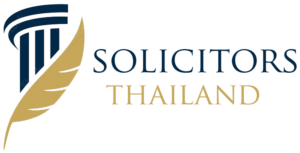Translation and Legalization in Thailand are integral steps for conducting international transactions, resolving legal matters, or complying with administrative requirements when dealing with foreign or cross-border elements. These procedures are mandatory for documents used in court proceedings, immigration, business registration, marriage or divorce, education, and property ownership, particularly when foreign documents must be recognized by Thai authorities or Thai documents are to be used abroad.
This article provides a legal and practical overview of how translation and legalization work under Thai law, including what institutions are involved, which documents require it, and how to ensure procedural compliance.
I. Legal and Institutional Framework
Translation and legalization are governed primarily by:
-
Civil and Commercial Code – for matters involving public documents and foreign evidence
-
Rules of the Ministry of Foreign Affairs (MFA) – regarding legalization of signatures and seals
-
Notarial Services Regulation of the Lawyers Council of Thailand – concerning notarization services
-
Regulations of foreign embassies and consulates in Thailand and abroad
Thailand is not a party to the Hague Convention Abolishing the Requirement of Legalization (Apostille Convention). Therefore, a full chain legalization is required when presenting documents internationally.
II. Translation Requirements and Standards
A. Certified Translation
A certified translation is required when:
-
A document is issued in a foreign language and must be submitted to Thai authorities
-
A Thai-language document is to be used abroad in official or legal settings
These include birth certificates, marriage and divorce decrees, powers of attorney, criminal record checks, academic transcripts, contracts, and court judgments.
The translation must be:
-
Accurate and complete
-
Performed by a qualified or court-accepted translator
-
Accompanied by a signed translator’s certificate, affirming that the translation is true and correct
The Ministry of Foreign Affairs (MFA) requires translations into Thai for documents being legalized for use in Thailand.
III. Legalization of Foreign Documents for Use in Thailand
Legalization ensures the authenticity of the signature and seal of the issuing authority or notary—not the content of the document. The procedure typically follows three stages:
1. Certification in the Country of Origin
The foreign document must first be notarized or certified by an official or authorized agency in the issuing country. For example:
-
Birth certificates: by the national registrar
-
Academic records: by the Ministry of Education
-
Affidavits: by a notary public or solicitor
Then, the document is authenticated by the Foreign Ministry of the issuing country.
2. Legalization by the Thai Embassy or Consulate
The document, after being authenticated domestically, must be submitted to the Thai embassy or consulate in that country for legalization. The consulate confirms the authenticity of the certifying authority’s signature and seal.
Processing time: Typically 3–5 business days
Requirements:
-
Original and copy of the document
-
Certified translation into Thai
-
Application forms and service fee
3. Use in Thailand
Once legalized, the foreign document can be presented to the relevant Thai agency (e.g., Immigration Bureau, Land Office, Court of Justice). In some cases, additional translation into Thai may still be required locally for full acceptance.
IV. Legalization of Thai Documents for Use Abroad
When Thai documents must be used in another country (e.g., for a visa application, business incorporation, or foreign litigation), the process involves:
1. Certification by MFA Thailand
The document (e.g., birth certificate, marriage certificate, commercial registration) must first be certified by the Legalization Division of the Department of Consular Affairs, Ministry of Foreign Affairs, Thailand.
Required documents:
-
Original Thai document issued by an official agency
-
Copy of passport or ID of applicant
-
Certified translation (if destination country does not use Thai)
Processing time:
-
Standard: 3 business days
-
Express: Same day (additional fee applies)
2. Legalization by the Foreign Embassy in Thailand
After MFA certification, the document must be legalized by the embassy or consulate of the destination country in Thailand. Each embassy has its own procedures, fees, and appointment systems. Some may require:
-
Translations into their official language
-
Proof of identity
-
Apostille-style authentication (even if not part of Hague system)
V. Notarization in Thailand
Thailand does not have “notaries public” in the common law sense. Instead, notarization services are performed by Notarial Services Attorneys who are:
-
Licensed Thai lawyers
-
Certified by the Lawyers Council of Thailand to perform notarial acts
Their powers include:
-
Certifying true copies of documents
-
Administering oaths and affirmations
-
Certifying signatures
-
Preparing affidavits and declarations
A notarized document may serve as the first step before MFA legalization or be required in support of foreign proceedings.
VI. Common Use Cases
| Purpose | Document Type | Required Process |
|---|---|---|
| Thai marriage registration | Foreign divorce or birth certificate | Translate → Legalize abroad → Submit to Amphur |
| Overseas employment or visa | Thai police clearance, degree | Translate → MFA → Foreign embassy legalization |
| Foreign business registration | Thai company affidavits, POA | Translate → MFA → Legalization by destination consulate |
| Civil litigation abroad | Thai court judgments or contracts | Translate → MFA → Legalize → Translate into court language |
VII. Risks and Common Pitfalls
-
Improper or partial translation may result in rejection by Thai or foreign authorities.
-
Unlicensed translation agencies may not meet the standards required for court or government submission.
-
Using uncertified notarial services may render documents inadmissible.
-
Translation inconsistencies between source and target documents can delay immigration or business approvals.
-
Forged or altered documents submitted for legalization may lead to criminal liability under Thai law.
VIII. Fees and Timeline
-
Translation: THB 500–2,000 per page (depending on language and complexity)
-
MFA legalization:
-
Standard: THB 200 per document
-
Express: THB 400 per document
-
-
Notarial services: THB 500–2,500 depending on service type
-
Embassy legalization: Varies by country (USD 30–150 per document)
IX. Judicial Acceptance and Evidentiary Use
For translated or legalized documents to be admissible in Thai courts, they must:
-
Be translated by a court-accepted translator
-
Be notarized and legalized when issued abroad
-
Be certified under Section 228 of the Civil Procedure Code as to authenticity and relevance
Courts may order re-translation or verification through the MFA or the issuing consulate in case of dispute.
X. Conclusion
Translation and legalization in Thailand are not mere formalities—they are vital procedural safeguards for the authenticity and recognition of documents in international legal, administrative, and commercial contexts. Whether you’re registering a foreign marriage, initiating cross-border litigation, or establishing an overseas business presence, proper compliance with Thailand’s translation and legalization processes is critical. Given the complexity and variation across jurisdictions, legal or consular guidance is often essential to ensure smooth execution.

